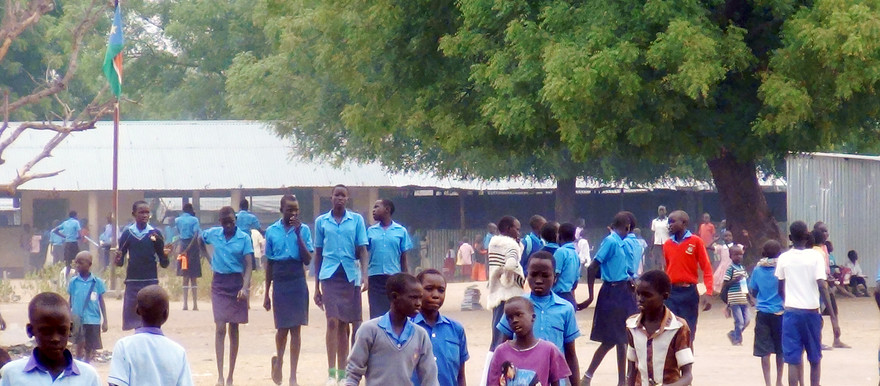Pupils in Bor prefer private schools, saying the quality of education is better than in government schools.
The Deputy Headteacher and Director for Studies at the privat Royal Junior Primary School in Bor, Deng Gideon, told Radio Tamazuj that many pupils seek admission at his school. “We receive many of them [new students] daily. Most of them complained to me that they do not receive enough lessons in government schools,” Gideon said.
His school had over 1,000 pupils last year, but this year the number rises, Gideon said. “We receive between 20 to 25 newcomers every day,” he added, although South Sudan’s Ministry of Education announced to offer free primary and secondary education in all public schools. “We want free education for all children,” Education Minister Deng Deng Hoc said on Monday, February 6.
Private primary schools in Jonglei State charge between 700 and 900 South Sudanese Pound (SSP), whereas the government charges only SSP 100 registration fee per student.
A government primary school teacher, who prefers not to be named out of fear to lose his job, said that since his school reopened for the current term, fewer students than expected enrolled.
The former Teacher Steering Committee Secretary in Bor, Gai Chaw, has another explanation for the low turnout at public schools: “The attendance is very poor in the government schools because teachers are not happy with the decision taken by Ministry of Education to terminate the steering committee.”
The steering committee, comprising of 11 teachers, was dismissed in October 2016, following a strike by teachers demanding a salary increase. “The complaints we raised,” Chaw said, included “low payment and lack of promotion among others”. A government primary teacher is paid around SSP 600 in Jonglei State.
Among the victims of the violent conflict that is ongoing since December 2013 are South Sudan’s already weak public services, including education – a right many children are deprived of. South Sudan has one of the world’s highest illiteracy rates and due to the violent conflict one of the world’s highest proportion of children out of school.
Photo: Pupils during a break at a school in Bor, February 20, 2017. (© Radio Tamazuj)




